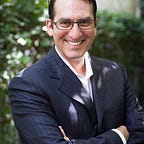Why humans are cruel
[A response to a VOX interview with Yale psychology professor Paul Bloom]
Professor Bloom is right to point out that many of the leading popular ideas about cruelty are oversimplifications or are based on the general need people have to see themselves in ways that feel better whether it’s the case or not. He’s also correct in emphasizing that the tendencies and abilities for cruelty are in everyone, not just a select damaged or dysfunctional minority. Cruelty is very complex. Considering it as a single thing or act and then further distilling it to a handful of causal factors — even if each is correct — only contributes to further misunderstanding.
That said, here’s one reasonably straightforward perspective: cruelty is a type of relationship. A passionate attachment comparable to love. In fact, being cruel is some people’s way of loving (meaning, being attached to others). Relationships dominated by cruelty are usually generated by experiences of shame, humiliation, dread, fearfulness, and being subjected to cruelty, and governed by the imperative of causing others to experience the same and asserting control to try to reverse the original traumatic paradigm of helplessness and disempowerment.
One part of Bloom’s position where I think he comes up short: “we need better ideas, better ideologies. We need a culture less obsessed with power and honor and more concerned with mindfulness and dignity. That’s the best we can do to quell our appetites for dominance and punishment.” While I agree and resonate with the aspiration, it’s too unrealistic to be viable. It suggests that societies will need to overcome a fundamental threshold shift in values in order to be able to absorb certain features of human nature. This sounds to me a lot like religion and other ideologies which espouse a life focused on certain ways of being while quarantining, suppressing, or repressing others. However well intentioned, that’s actually a recipe for more of same, not less.
Here’s a more workable approach: more uncomfortable conversations about our nature and our actions. Bring cruelty and prejudice and bias and hatefulness and indifference and all the other interrelated expressions of how despicable, destructive, and deplorable we can be into an unblinking public discourse. Have intelligent educated informed discussions, like what Prof Bloom is trying to achieve, which clarify the misinformation and dispel the popular myths. Give people, individuals, families, and societies, opportunities to accurately and more deeply understand themselves and their behavior, and create social mechanisms which can guide and assist in contending with and working through the ongoing realities of human aggression, and which can also help enhance our equally innate instincts and capacities for compassion, empathy, kindness, and prosocial collaborativeness.
===========
Dr Alexander Stein is the founder of Dolus Advisors, a NY-based consultancy that employs expertise in human risk forecasting — actionable insight in human behavior and its drivers — and the psychodynamics of ethics, compliance, and culture to help companies proactively mitigate and defend against white-collar and cyber malfeasance risks. Also a Principal in the Boswell Group, Dr. Stein advises senior executives and boards, combining clinically-informed insight with practical strategies to productively address challenging people issues in leadership, boardroom and senior team dynamics and assessments, and corporate culture.
